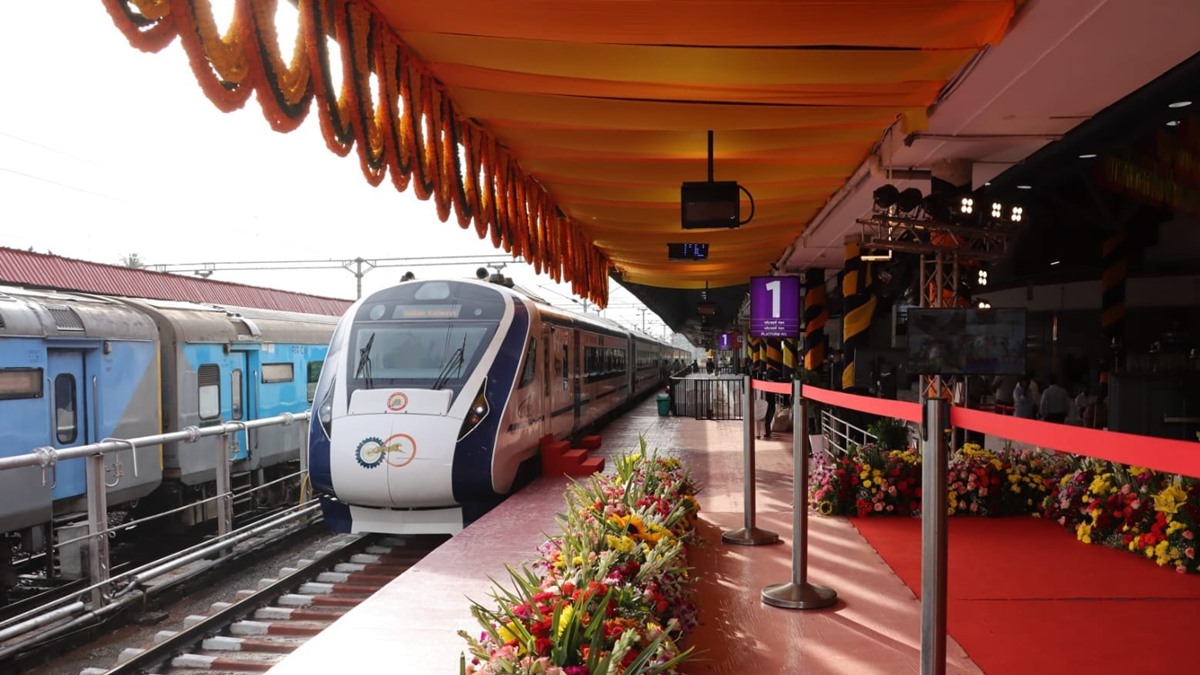
Mamata and BJP: The two layers in their relation
Kolkata, Oct 3: The political equation between the Trinamool Congress (TMC) and Bharatiya Janata Party (BJP) has binary of sort which makes it challenging for both the parties to win conviction, especially in the state of West Bengal.
On Monday, October 1, Bengal Chief Minister Mamata Banerjee had a meeting with Union Home Minister Rajnath Singh at the state secretariat over issues that are related to the statecraft. Being a state at the border also one with extremism-influenced zones, it becomes a necessity for both the Centre and the Bengal government to coordinate on important issue like internal security. And given the personal rapport between Banerjee and Singh, cooperation and coordination between the two sides do not seem unlikely.

At level of party politics, the relation is far too rough
But the problem surfaces when the issue of party politics take centrestage. A day after the Bengal CM met the country's home minister, Kolkata saw an explosion that killed a child and injured many and the state's food minister outrightly blamed the BJP and RSS for it, saying it is a deep conspiracy by those indulging in the politics of hatred. He also said the chairman of the local municipality was the target of the attack and threatened that the TMC workers would not hit back.
The state minister's remarks even before a formal investigation took place into the explosion kicked off a chain of reaction with the local BJP leaders saying the explosion was nothing but the result of the TMC's internal squabble. The Congress and Left - two powers that had once dominated the state's politics but lost much of their influence currently - also blamed the TMC's factionalism for the blast.
Also Read | West Bengal: Where both politicians and terrorists play with bombs
Bengal BJP chief Dilip Ghosh later said the RSS is supposed to hold a route march on Mahalaya (October 8) in the place where the blast took place. He said the blast was deliberately carried out to scuttle the RSS's plan.
A few days ago, the BJP had lashed out at the TMC over the death of two college students in Islampur allegedly in police firing and called a strike across the state which was condemned by the TMC. The fathers of the deceased were also flown to New Delhi by the BJP to meet its national president Amit Shah and also the chairman of the National Human Rights Commission Justice HL Dattu.
It would have been interesting had the visit by the home minister to Kolkata taken place after the blast and not before. The home minister evaded questions over the deaths of the two students in Islampur and reports said that the state BJP workers were surprised that Singh did not condemn the killings that led to protests across the state.
This scenario doesn't seem peculiar for this is a kind of arrangement that parties have now in the Indian federal functioning. In matters of administration, there is little the Centre and the states can do without each other's cooperation. But at the same time, the political issues aimed at extracting electoral mileage create major fissures between the same parties. This often results in a sense of alienation and frustration among the local cadres, especially of the national party as they feel that their regular struggle on the ground is going waste.
Also Read | BJP eyes 25 LS seats, victory in 2021 state polls in Bengal
The Congress has witnessed the same in the past. While a number of local leaders of the fragmented party have a strong dislike for CM Bannerjee, the central leadership knows that an alliance with the TMC supremo is what it requires as a weaker partner. This creates a duality and it is the local leadership which has to compromise often. Recently, the Congress changed its local chief in Bengal because he was too stubborn to accept any alliance with Banerjee for the upcoming elections.
BJP-led Centre requires Mamata's cooperation
The BJP needs to be aware that a similar pattern doesn't grow in its relationship with Banerjee. Although the saffron party's local leadership in Bengal has a repulsive take on the CM and its chief Amit Shah is also determined to see the back of the Banerjee government, the Centre requires the state's cooperation in matters of internal security and cooperation with the neighbouring state of Bangladesh. Banerjee herself has little to lose because she still has a strong grip on the ground in Bengal and the BJP can undo her influence in the state only through growing a constructive opposition which is not visible much now.
The BJP needs to be careful that its relationship with the TMC at the lower rungs does not reach a point of no return which would only see the state falling further into chaos and it will then be a headache for its own government at the Centre to put things in order.


 Click it and Unblock the Notifications
Click it and Unblock the Notifications


































